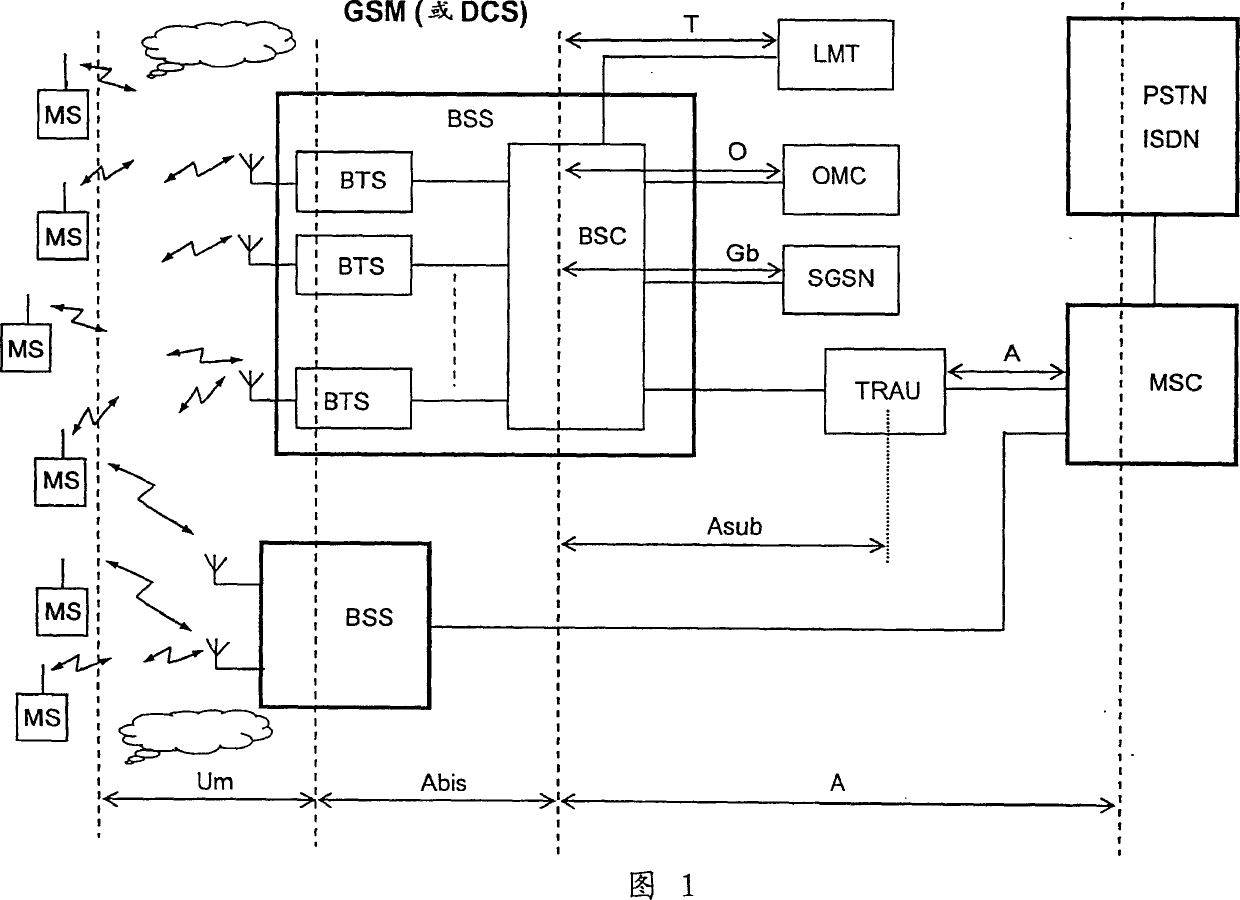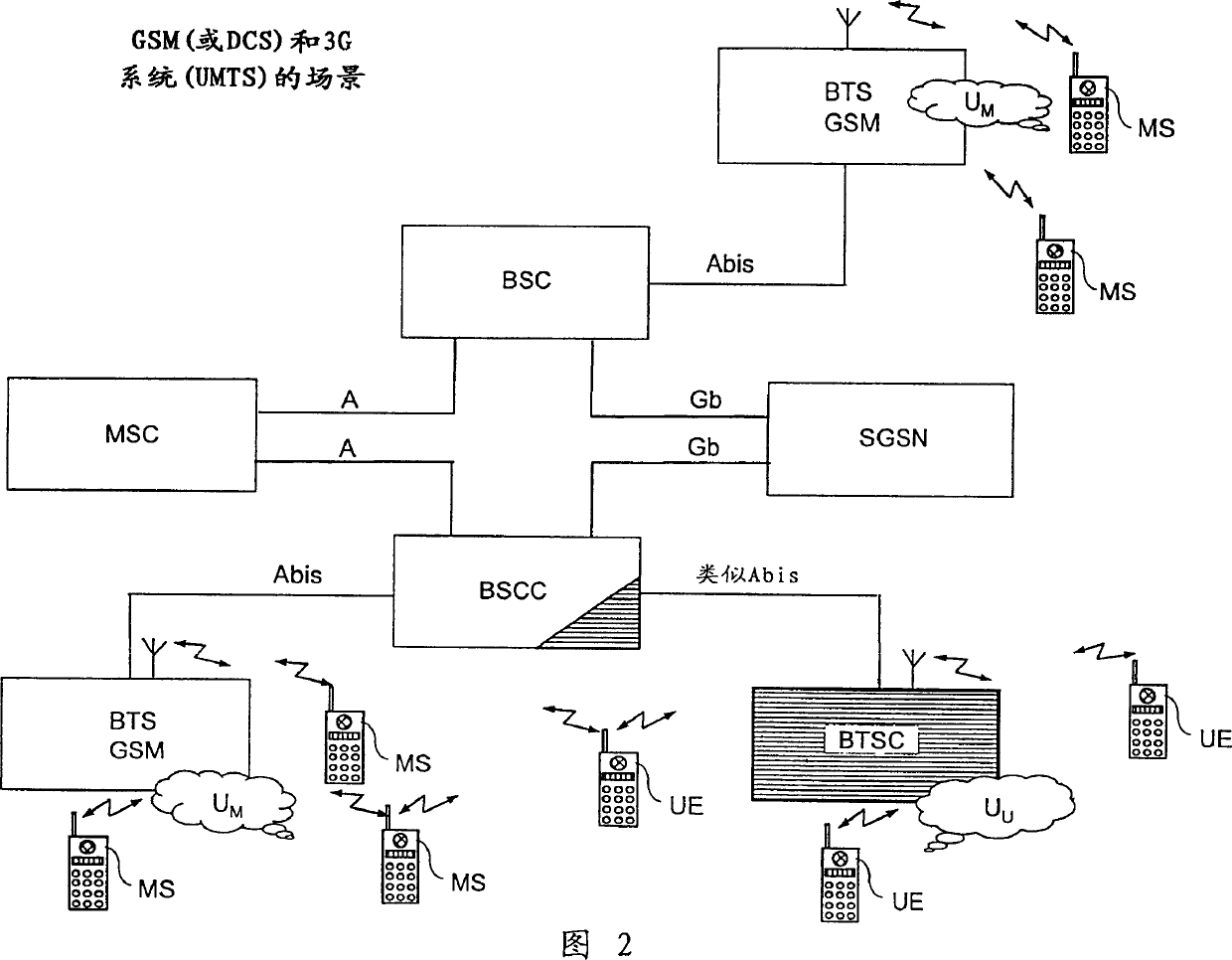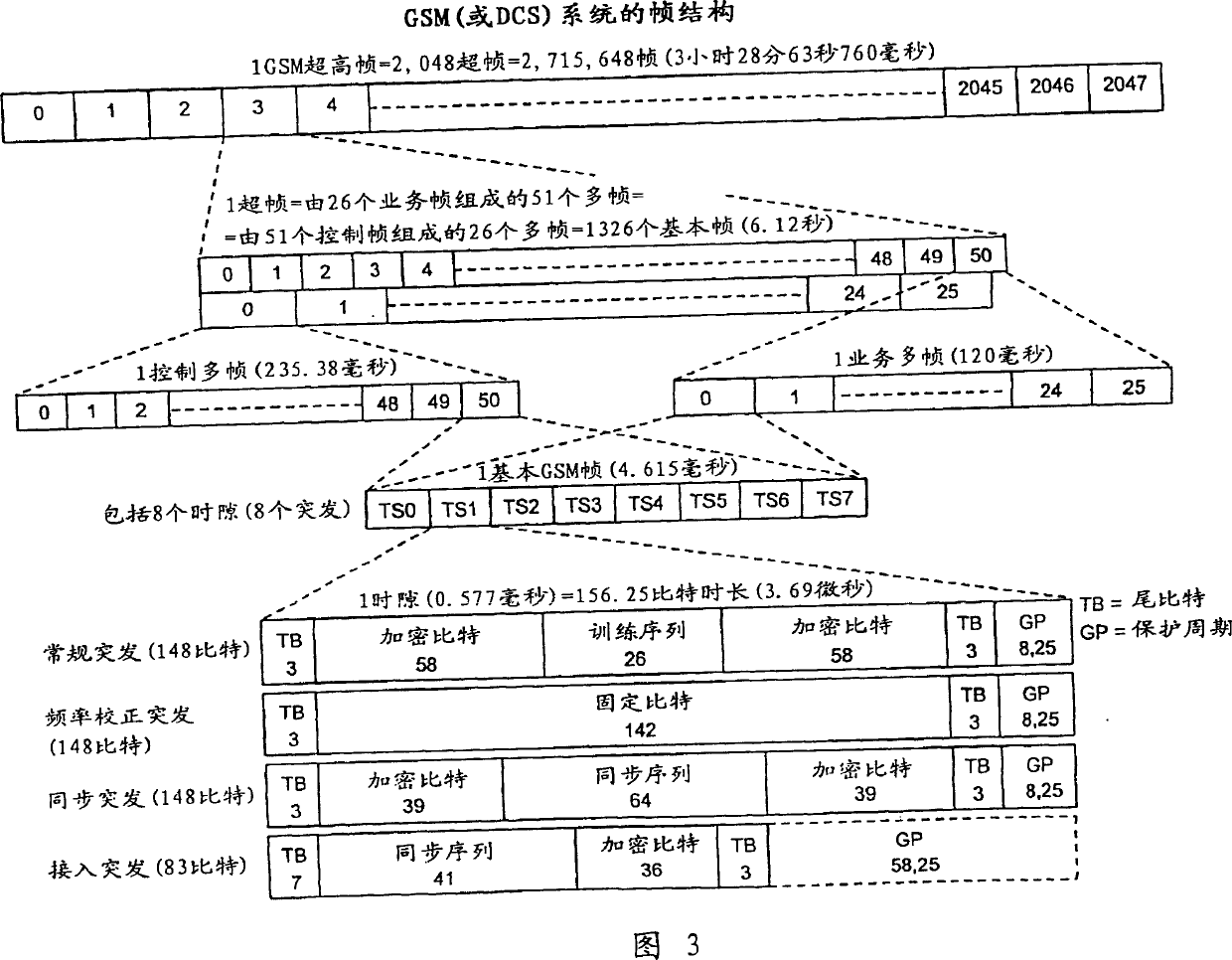Handover procedures in radio communication system
A telecommunications system and handover technology, applied in wireless communication, multiplex communication, code division multiplex system, etc., can solve problems such as unbearable execution delay and achieve high handover processing speed
- Summary
- Abstract
- Description
- Claims
- Application Information
AI Technical Summary
Problems solved by technology
Method used
Image
Examples
Embodiment Construction
[0117] Figure 9 (explained in previous figures) shows the sequential structure of seven time intervals or time slots and three other special time slots (to be described later) within a 3G basic frame for use in a cell One of those general carriers (which are much smaller in number than those used in GSM due to the wide band) repeated indefinitely. The basic frame of Fig. 9 comprises m time slots UL#0, ..., UL #m (uplink) from mobile unit MS and n time slots DL #n, ... from BTSC (Fig. 2) , DL#0 (downlink), the TDD type full duplex is implemented in the 3G system. The physical channel of the Uu interface is formed by a set including the carrier and its used time slot and spreading code, which is used to support channel characteristic information from a logical point of view. Sequential frames are organized in multiple levels observed across all carriers used in the 3G system. The carriers transmitted by the BTSs transmit mutually synchronized frames, thus simplifying synchroni...
PUM
 Login to View More
Login to View More Abstract
Description
Claims
Application Information
 Login to View More
Login to View More - R&D
- Intellectual Property
- Life Sciences
- Materials
- Tech Scout
- Unparalleled Data Quality
- Higher Quality Content
- 60% Fewer Hallucinations
Browse by: Latest US Patents, China's latest patents, Technical Efficacy Thesaurus, Application Domain, Technology Topic, Popular Technical Reports.
© 2025 PatSnap. All rights reserved.Legal|Privacy policy|Modern Slavery Act Transparency Statement|Sitemap|About US| Contact US: help@patsnap.com



